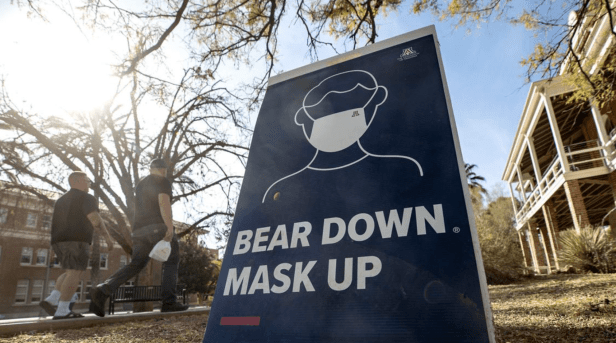New University of Arizona studies looking at possible PFAS-COVID-19 link
By Tony Davis | Arizona Daily Star | February 15, 2021

Read the full article by Tony Davis (Arizona Daily Star)
“Three new University of Arizona-led studies are trying to determine if ‘forever chemicals’ known as PFAS compounds increase the risk of contracting COVID-19 or weaken vaccines’ ability to protect against the disease.
The federally financed studies, now underway, are examining whether PFAS in blood serum can increase COVID-19 risk for firefighters, other first responders, health-care workers and others, including teachers, who hold what are considered essential jobs. Blood serum is the clear fluid left over in blood after potentially clotting materials are removed.
Underlying this research are previous scientific findings that PFAS at high enough concentrations in people have been documented to weaken immune systems’ resistance to disease. Research has also shown the PFAS compounds can suppress humans’ response to other vaccines.
One new study specifically targets the effects of PFAS on firefighters’ antibody response to COVID-19, said UA public health professor Jeff Burgess, lead researcher on all three studies.
In the other two studies, researchers will collect blood serum samples for PFAS as part of projects targeting COVID-19’s presence in various occupational groups, Burgess said.
The studies are financed by the Centers for Disease Control, the U.S. Agency for Toxic Substances Disease Registry, and the National Institute for Environmental Health Sciences.
‘They’re trying to really understand the nature of the infection and the risk factors for it, and to understand the effectiveness of vaccinations at preventing COVID-19,’ said Burgess, associate dean for research at UA’s Mel and Enid Zuckerman College of Public Health.
‘Their main point is to analyze vaccine effectiveness,’ Burgess said of the latter two studies.
The three studies would not have been financed without some reason to believe that PFAS exposures could affect COVID-19, he said.
‘The information that’s out there is that PFAS exposures can in other infections, predominantly respiratory infections, can increase susceptibility to infection and also reduce immune response to vaccination,’ Burgess said.
The CDC and the Agency for Toxic Substances and Disease Registry recognize these problems from past studies, the CDC told the Arizona Daily Star in an email.
‘Because COVID-19 is a new public health concern, any and all work around understanding this virus is occurring in a very dynamic environment, where things change and evolve each day,’ CDC said.
PFAS compounds are widely used chemical combinations, comprised of a chain of carbon and fluorine atoms linked together. Because the carbon-fluorine bond is one of the strongest known forms of chemical bonding, these chemicals do not degrade in the environment, says the National Institute of Environmental Health Sciences. That’s how they got the nickname ‘forever chemicals…’”
This content provided by the PFAS Project.
Location:
Topics: